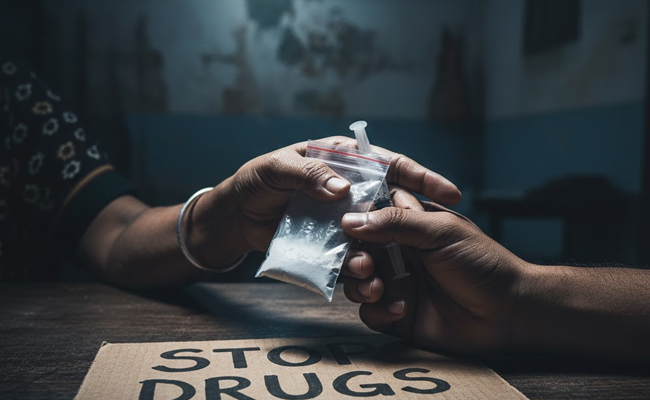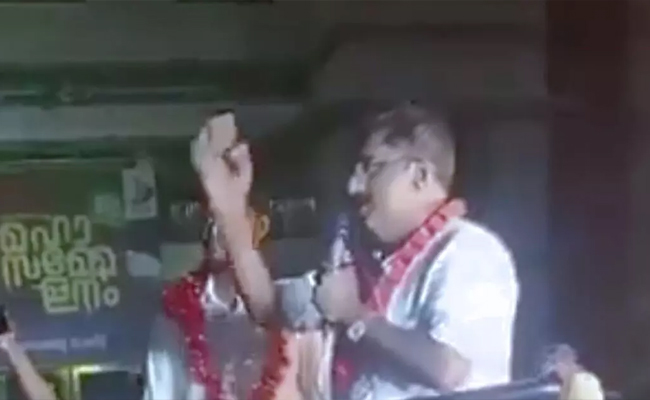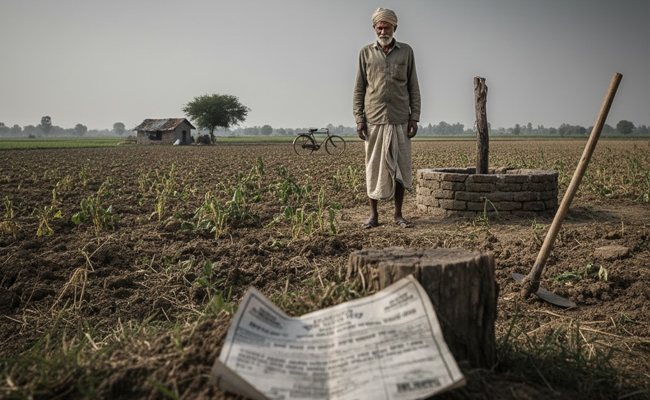Bengaluru (PTI): Three days after the arrest of actor Darshan, barring a couple of reactions, the Kannada film fraternity is still hesitant to either condemn publicly or come in support of the star.
In the resounding silence, actor-producer-policitian Ramya aka Divya Spandana’s stance on the murder accused, calling him a ‘habitual offender’, reverberates louder.
In a recent interview to a television channel on the influence Darshan holds, Ramya claimed that the clout being attributed to him is overrated.
“In the past he did, but I don’t think he does anymore the way we are hyping him up. For example, he campaigned for a couple of candidates in the last election and all of them lost. So, I don't think, just because you see people standing outside the police station, it doesn’t mean he has that kind of clout,” she added.
She also said Darshan is notorious for having “rowdy elements” as fans, therefore grabbing all the attention.
Earlier, she had posted a message on X congratulating the Karnataka police
Great job by @DCPWestBCP S.Girish, ACP Chandan Kumar & their team for the fearless investigation & arresting this habitual offender @dasadarshan who is the conspirator for a murder.
— Vinod Shamanna 🇮🇳 (@shamannavinod) June 14, 2024
"No One Is Above Law".@CPBlr @timesofindia pic.twitter.com/mtkhhVqR8q
“Great job by @DCPWestBCP S Girish, ACP Chandan Kumar & their team for the fearless investigation & arresting this habitual offender @dasadarshan who is the conspirator for the murder. No one is above law,” she posted.
Meanwhile, actor Sanjjana Galrani is going to town with her support to the star claiming that he is just an accused, not the culprit.
To a YouTube channel, Galrani claimed that when she learnt about the arrest via Instagram, she felt extremely shocked. She called June 12 “a black day” for the Kannada film industry.
Calling Darshan a box office king, she also expressed her belief that he will be proven innocent because she knows “what kind of person he is”.
“It’s very early to jump the gun. When something like this happens with a celebrity, if there is a 5% allegation, it becomes a 500% allegation,” she added.
She also urged people not to speculate over perceived ‘bad qualities’ of a person and let police and law do their job and bring real justice to the victim.
“Just as being a celebrity is a great opportunity, it is also a curse. We celebrities face big challenges like this,” she added.
Incidentally, Galrani was arrested by Karnataka police’s Central Crime branch on September 8, 2020, in connection with an investigation into a drug racket involving Kannada film industry.
Actor Ragini Dwivedi was also arrested in the same case. Galrani was granted bail after three months in prison.
Meanwhile, some netizens are objecting to Kannada Film Chamber of Commerce (KFCC)’s statement that they “cannot ban” Darshan.
They pointed out that in 2011, when Darshan was arrested on charges of domestic violence, his co-star Nikita Thukral, was promptly banned by Kannada Film Producers’ Association for purportedly having an affair with the murder accused.
In a BBC report dated September 12, 2011, then president of the association, Munirathnam had come on record that if Thukral “apologises for her behaviour and says she will just work in films and not get involved in domestic affairs of fellow actors, we will withdraw the ban”.
He had also said the ban, a first for the Kannada film industry, would be a “lesson for others”.
Thukral, who had also acted in films in other regional languages like Tamil and Telugu, had denied having an extra-marital affair with Darshan.
Let the Truth be known. If you read VB and like VB, please be a VB Supporter and Help us deliver the Truth to one and all.
Mangaluru: Intensifying action against drug peddling, Mangaluru City police arrested 25 people and registered 12 cases under the Narcotic Drugs and Psychotropic Substances (NDPS) Act between November 30 and December 13. During the operation, police seized 685.6 grams of MDMA and 1.5 kg of Ganja, The Times of India reported.
City police commissioner Sudheer Kumar Reddy reportedly said, the QR code based anonymous reporting system, introduced to enable citizens and students to discreetly share information on drug-related activities, has received an encouraging response. Several recent arrests were made based on inputs received through this system, helping police tighten the noose around drug peddlers.
ALSO READ: "Women are only for sleeping with husbands”: CPI(M) leader’s victory speech sparks outrage
According to the report, so far this year, up to December 14, police have registered 107 drug peddling cases and arrested 219 accused. In addition, 562 cases were booked for drug consumption, leading to the arrest of 671 people.
During raids conducted this year, police allegedly seized large quantities of narcotics, including ganja worth Rs 88.7 lakh, MDMA valued at Rs 1.2 crore, and MDMA pills worth Rs 87,000. Other raids include charas worth Rs 1.7 lakh, hydro-weed ganja worth Rs 94.7 lakh, methamphetamine worth Rs 50,000, bhang chocolates worth Rs 6,800, cocaine worth Rs 1.9 lakh, and opium worth Rs 9,000.
In 2024, police arrested 160 peddlers in 88 cases, in addition to booking 1,026 cases for consumption and arresting 1,244 persons. In 2023, the police arrested 199 peddlers in 94 cases and booked 619 cases for consumption and arrested 749 persons.
"We ensure that peddlers are caught red-handed so that they cannot later dispute the case or claim innocence," TOI quoted commissioner Reddy as saying.
To curb drug use among students, police also introduced random drug testing in colleges. Around 100 educational institutions were covered in the first phase, where nearly 6,000 students were screened. As per the report, about 20 students tested positive and were counselled. They will undergo follow-up tests in the next phase.
Reiterating a zero-tolerance policy, the commissioner reportedly said random testing would continue and colleges have also been directed to conduct drug tests at the time of admission to deter substance abuse at an early stage.





